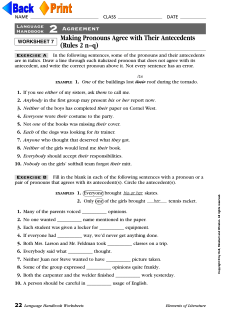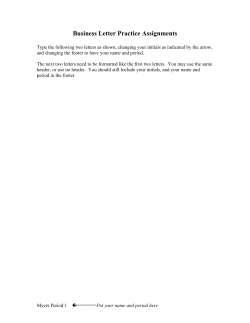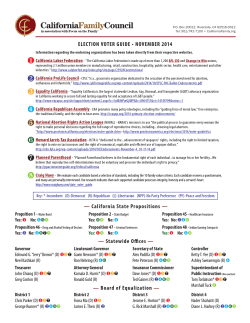
Document 439261
Evidence of evidence is evidence (trivially) Juan Comesaña – comesana@arizona.edu Eyal Tal – eyaltal@email.arizona.edu University of Arizona Evidence of evidence is evidence (trivially) Richard Feldman (2007, 2011) has proposed and defended different versions of a principle about evidence. In slogan form, the principle holds that “evidence of evidence is evidence”. Recently, Branden Fitelson (2012) has argued that Feldman’s preferred rendition of the principle falls pray to a counterexample related to the non-transitivity of the evidence-for relation. Feldman (2014) replies, arguing that Fitelson’s case does not really represent a counterexample to the principle. In this note we argue that Feldman’s principle is trivially true. Thus, Feldman is right to dismiss Fitelson’s case as a genuine counterexample, but the victory is Pyrrhic. Fitelson presents Feldman’s principle as follows:1 (EEE3): If S possesses evidence (E1) which supports the claim that S2 possesses 1 evidence (E2) which supports p, then S1 possesses evidence (E3) which supports p. Fitelson’s alleged counterexample is the following. Suppose that a card c will be picked at random from a standard deck and then shown to John. Suppose further that we provide Jim with the following piece of information: (E1): c is a black card. 1 Feldman’s statement is slightly different: (EEE3): If S has evidence, E1, supporting the proposition that there is someone who has evidence that supports P, then S has some evidence, E2, that supports P. (Feldman 2014, p. 292). (E1) supports, for Jim, the claim that John possesses the following piece of information: (E2): c is the ace of spades. (E2), in turn, supports the proposition that c is an ace (which from now on we will call “p”). So, after learning that (E1) is true, Jim is in possession of evidence (E1) which supports the claim that John possesses evidence (E2) which supports p. But, Fitelson adds, Jim does not thereby posses evidence which supports p. For (E1) itself does not support p, and we can stipulate that Jim does not have any further beliefs about c apart from (E1), that John knows what card it is, and whatever follows from those two propositions. Feldman replies as follows: When Jim gets the evidence that John has seen the card, he gets some evidence that John has evidence for (E2), and this is redundant evidence for p. Furthermore, he gets similar evidence for the card being each of the other live possibilities. Hence, Jim’s rational beliefs do not change. But, there is in this story, some evidence for p and no counterexample to the final evidence of evidence is evidence principle. (Feldman 2014, p. 299) Feldman’s reply is hard to follow. For instance, it is not clear why Feldman thinks that the fact that John has evidence for (E2) is evidence (even redundant evidence) that Jim has for p. But, in any case, Feldman is right that Fitelson’s case is not a counterexample to (EEE3). To see that, we need only point to a proposition (E3) that Jim possesses as evidence which supports p. Remember that Fitelson stipulates that Jim suspends judgment on any proposition about c other than (E1) and the fact that John knows which card it is. Fitelson claims that neither of those two propositions, nor anything they entail, can plausibly be said to be evidence for p. But this is clearly false. For instance, (E1) entails: (E3): c is not the Jack of hearts, and (E3) clearly supports p (see also Roche 2014). So Feldman is right that Fitelson’s case is not a counterexample to (EEE3). But that is so only because nothing can possibly be a counterexample to (EEE3). For any pair of propositions E and p (about which the subject in question is not already certain), something entailed by E supports p: for instance, the disjunction either E or p. Therefore, Feldman’s (EEE3) is only trivially true, and so the fact that it is not refuted by Fitelson’s case is irrelevant.2 References 2 Thanks to Branden Fitelson, Carolina Sartorio , and an anonymous referee for Analysis for comments on a previous draft. For further discussion of these issues, including a proposal for a better principle, see Tal and Comesaña (ms.). Feldman, R. 2007. Reasonable religious disagreements. In Philosophers without God: Meditations on Atheism and the Secular Life, ed. L. Antony, 194–214. Oxford: Oxford University Press. Feldman, R. 2011. Evidence of evidence is evidence. In Keynote lecture at Feldmania: A Conference in Honor of Richard Feldman, UT-San Antonio. 19 February 2011. Feldman, R. 2014. Evidence of evidence is evidence. In The Ethics of Belief, ed. John Mattheson and Rico Vitz, 284-99. Fitelson, B. 2012. Evidence of evidence is not (necessarily) evidence. In Analysis, Vol. 72, N.1: 85-88. Roche, W. 2014. Evidence of evidence is evidence under screening-off. In Episteme, 11, 1: 119-24. Tal, Eyal and Juan Comesaña ms. Is evidence of evidence evidence?
© Copyright 2025









